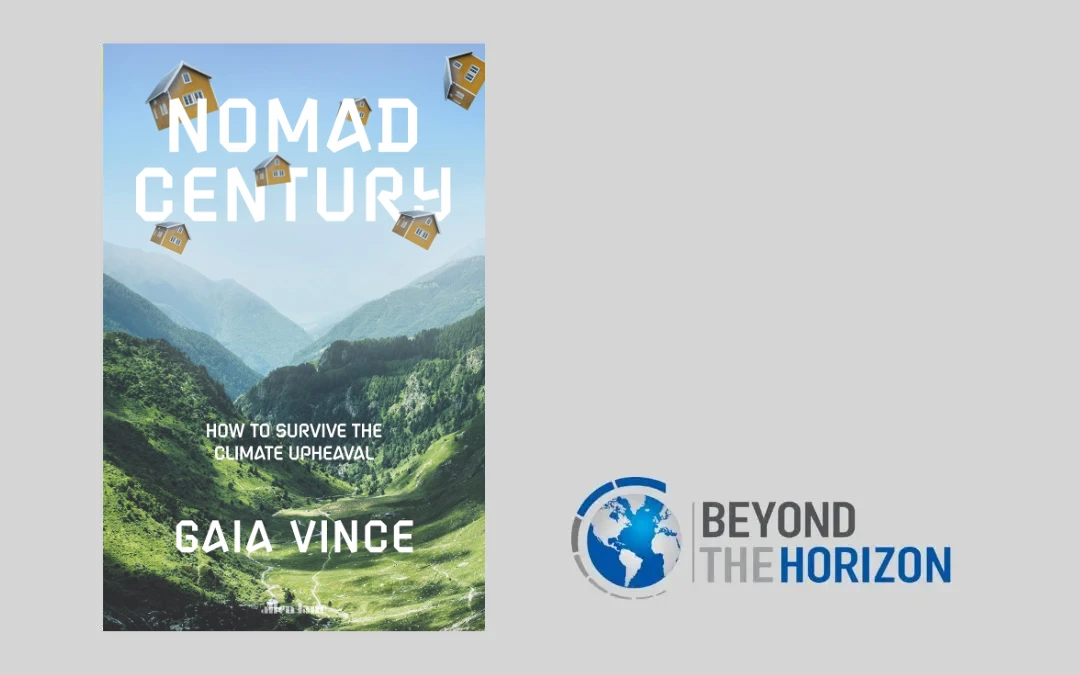A great upheaval is coming. It will change us, and our planet.
In the global south, extreme climate change will push vast numbers of people from their homes, with large regions becoming uninhabitable; in the planet’s more comfortable north, economies will struggle to survive demographic changes with massive workforce shortages and an impoverished elderly population.
Over the next fifty years, hotter temperatures combined with more intense humidity are set to make large swathes of the globe lethal for 3.5 billion of us. Fleeing the tropics, the coasts and formerly arable lands, huge populations will need to seek new homes; you will be among them, or you will be receiving them. This migration has already begun – we have all seen the streams of people fleeing drought-hit areas in Latin America, Africa and Asia where farming and other rural livelihoods have become impossible. Climate-driven movements are adding to a massive migration already under way to the world’s cities. The number of migrants has doubled globally over the past decade, and the issue of what to do about rapidly increasing populations of displaced people will only become greater and more urgent as the planet heats.
Have no doubt, we are facing a species emergency – but we can manage it. We can survive, but to do so will require a planned and deliberate migration of a kind humanity has never before undertaken. […]
Manifesto
- People relocating is a natural human behaviour; migration is a successful survival adaptation.
- Places where people currently live will be uninhabitable; we must ensure a safe, fair process for migration, overseen by a global agency with real powers.
- We need to redirect the productive capacity of society to address climate change and the looming demographic crisis.
- Migration is an economic not a security issue. It drives economic growth and reduces poverty.
- Rich countries and poor countries must invest in alliances that increase training and education, and climate resilience.
- Decarbonizing our economies must be done urgently and globally, including through taxation and incentives.
- Ice melt and coral reef loss are already dangerously accelerating: solar reflectivity, such as cloud brightening, should be deployed without delay, and other technologies to reduce temperatures should be explored.
- We must work urgently to reverse the destruction of ecosystems and restore biodiversity to build resilience and protect natural systems.
We are not impotent bystanders. But today we lack a coherent plan; we are simply experiencing our world heating up, and reacting to each new shock – each drought, each typhoon, each blazing forest, each heaving boat of migrants – with a new patch-up. We must take control of our future, and that means making a plan to protect the well-being of all humans, rich and poor, from every continent, as we enter the challenging environment of the coming decades. This means having the courage to envision a different way of being a human: in effect, unsticking people from their fixed abodes and setting them free to roam, free to seek the safe places.
During the Covid pandemic, we transformed our understanding of what is normal and what is socially possible. Who would have believed that so many of us would have voluntarily restricted our movements to within metres of our homes? It is, I think, easier to imagine the opposite: that many of us will move thousands of kilometres from home.
People will move in their millions – right now, we have a chance to make it work. This could be a planned, managed, peaceful transition to a safer, fairer world. With international cooperation and regulation, we could and should make the Earth liveable.
That has to be worth trying. So let’s begin.
This extract was first published on 17 Oct. 2022. The OECD Forum Network is a space for experts and thought leaders—from around the world and all parts of society— to discuss and develop solutions now and for the future. Aiming to foster the fruitful exchange of expertise and perspectives across fields to help us rise to this critical challenge, opinions expressed do not necessarily represent the views of the OECD.

